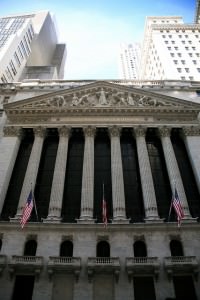Wall Street Destroying Weak Regulation by Purchasing the House of Representatives
Wall Street heavily donates to House Speaker John Boehner in an effort to destroy even the weakest regulations.
By: William Shaub, Online Editor
No serious person concerned with banking regulation was pleased with the end result of the House Democrats’ 2010 legislative response to 2008’s financial crisis.
Critics like Matt Taibbi weren’t even remotely satisfied, describing the Dodd-Frank Wall Street Reform and Consumer Protection Act as a “cop-out, a Band-Aid on a severed artery…” representing “the end of the best opportunity we had to do something real about the criminal hijacking of America’s financial-services industry.”
The corporate legion on Wall Street, however, severely disagrees with Taibbi and the assertions of other critics. Wall Street is quite concerned about the reforms that Dodd-Frank introduced, and it’s proving its point by shifting resources from supporting the old majority faction of the United States’ one party system to the new one: the House Republican caucus.
Specifically, New York hedge fund, Paulson & Co., has contributed $61,050 to House Speaker John Boehner’s campaign since January. Moore Capital Management LLP “employees” proffered $53,000, and Cantor Fitzgerald LP donated $45,000. According to the business press (Bloomberg News,) not a single one of these firms contributed to Boehner’s 2010 election bid. Why donate to the most powerful member of the House now?
[pullquote]
The answer: break up the big banks…and nationalize them to a local level by giving stakeholders (employees)…a role to play when major decision-making must take place.
[/pullquote]
January happened to be the month that the GOP controlled House voted along party lines to cut the budget of the Commodity Futures Trading Commission, a bureau writing most of the new derivative-trading rules. The House Appropriations Committee, led by Rep. Paul Ryan, voted to limit funding for the new consumer protection bureau. The consumer protection bureau is also absent a leader, courtesy of Republican opposition to Elizabeth Warren and now Richard Cordray.
In fact, financial firms are so concerned about Warren, that they’ve picked up on rumors that she might run against Sen. Scott Brown in Massachusetts. Their response to the rumors wasn’t slight; the Huffington Post’s Amanda Terkel pointed out that they donated 16% of Brown’s total campaign contributions for the second quarter of 2011, which amounts to about $320,000 in funds.
The author of what Taibbi perhaps correctly deemed a “cop out”, Rep. Barney Frank (D-MA), told the liberal press that the opposition party’s refusal to fund the financial regulators who are supposed to implement Dodd-Frank is effectively destroying the legislation. “They can’t do the new duties. They can’t even carry out some of the old ones,” he insisted.
Wall Street’s extensive lobbying against Dodd-Frank is strikingly unprecedented. Former labor secretary Robert Reich writes that “the six largest banks spent $29.4 million on lobbying last year, according to firm disclosures — record spending for the group.” The Center for Public Integrity has reported that “the Street and other financial institutions engaged about 3,000 lobbyists to fight Dodd-Frank – more than five lobbyists for every member of Congress – and have hired almost the same number to delay, weaken, or otherwise prevent its implementation.”
Is “taking the money” out of politics the way to limit Wall Street’s control of the government? Our problems run deeper than that, although it would certainly help. Campaign funding totals are a remarkable indicator of elections and policy, evidenced by the intense lobbying that turned Dodd-Frank from what the Wall Street Journal originally called “sweeping regulation” into a “cop out.”
The real answer remains clear: break up the big banks through democratizing policies and nationalize them to a local level by giving stakeholders (employees) and communities a role to play when major decision-making must take place.
In essence, the market power of economic giants must be reduced. Without dismantling the concentrated authority that allows them to undermine democratic functions, their political and financial power will continue to subordinate John Boehner, the Republican caucus, and the rest of the U.S government. For all that Dodd-Frank and its reforms weren’t, they were something. We’ve gotten to the point where anything is too much, yet the economic stakes are atmospherically high, and future stability for main street is in the balance.
ARB Team
Arbitrage Magazine
Business News with BITE.
Liked this post? Why not buy the ARB team a beer? Just click an ad or donate below (thank you!)
Liked this article? Hated it? Comment below and share your opinions with other ARB readers!

























Share the post "Wall Street Destroying Weak Regulation by Purchasing the House of Representatives"